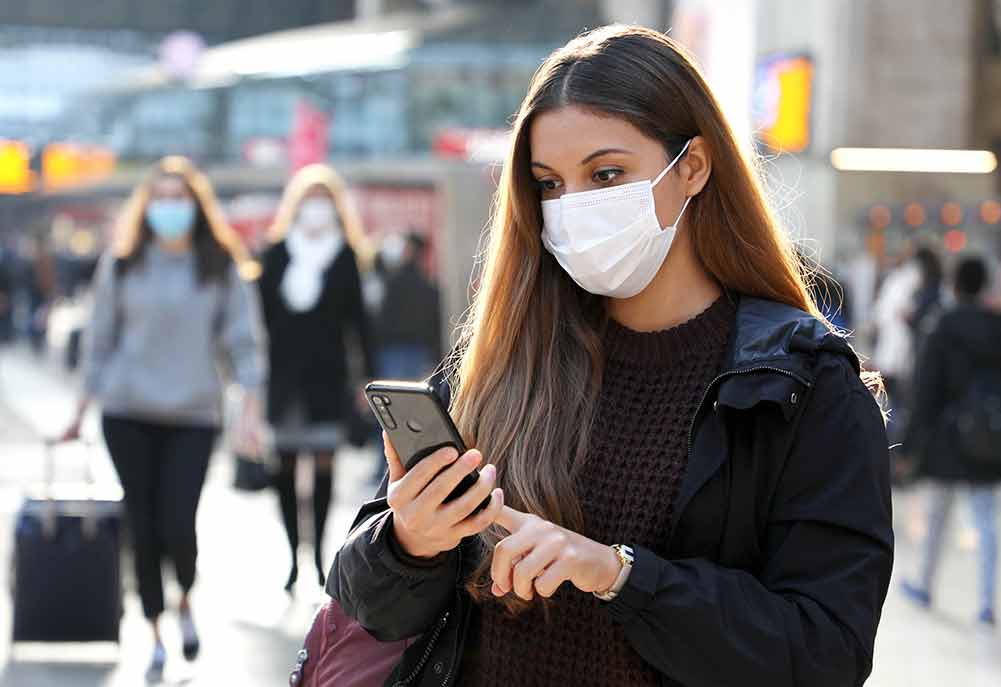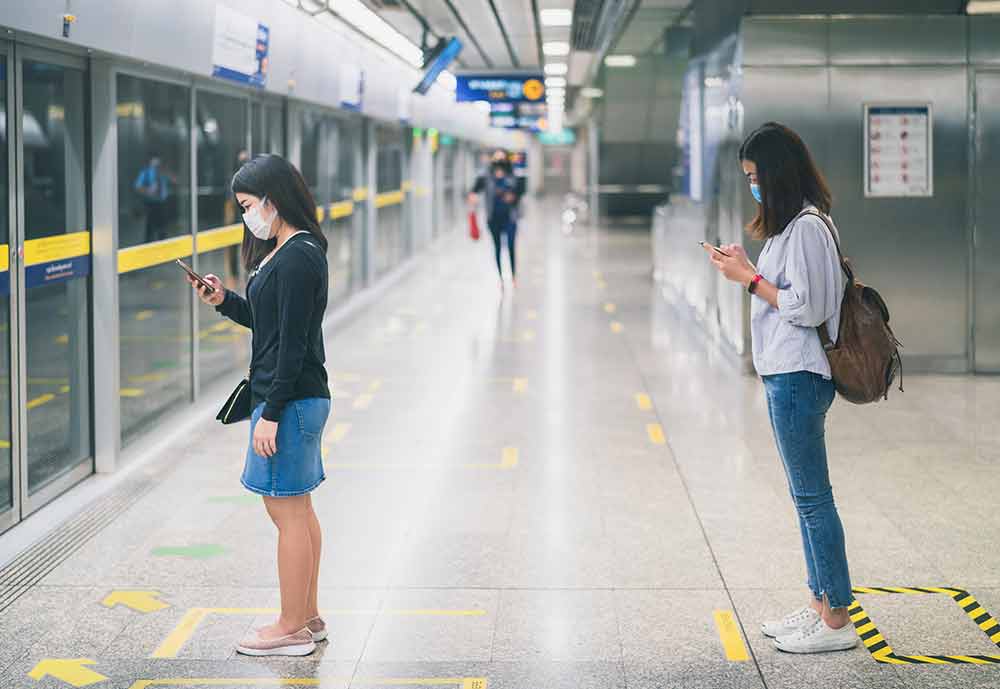There was a time, a beautiful, glorious time, when travelling by air—especially solo—was an experience that was freeing and uplifting at the same time. Even those who haven’t heard of the phenomenon called airport tourism—where major airports serve as brilliant tourist destinations themselves by offering a glimpse of the culture, products, food, etc of the associated city or region—know that travelling through airports can be a lot of fun. You can not only catch a flight to get you to your destination, but also eat and shop to your heart’s delight!
But with the COVID-19 pandemic in 2020, things changed. First, there were months of ban on air travel (or travel of any kind, for that matter), nationally and internationally. Then, flight services started again with air tickets costing a small fortune, RT-PCR tests becoming compulsory, and travel advisories ensuring that people had as little exposure to or risk of transmitting COVID-19 as possible—which meant no shops, restaurants, kiosks, etc open when you did go to the airport. As COVID cases went down, people began getting a dose or two of vaccines, and the economy started opening up, air travel resumed with its previous vigour.
Well, almost. No matter where in the world you live, you can’t deny the fact that our collective experiences over 2020 and 2021 have changed how we view and practice travel, especially air travel. Your flight might be non-stop, with a layover, domestic or international, but there are some habits that we have ingrained—and some anxieties we simply cannot let go of—after the global COVID-19 experience.
Travel Anxiety In Post-COVID Times
A study published in the Journal of Travel Medicine in 2020 claims that there has been a rise in fear and, unfortunately, a stigma around air travel since the pandemic. While the pandemic itself had a huge impact on mental health, mental health associated with travel has taken a new turn, with travel anxiety reaching a new pitch. Those who had already reached adulthood before the September 11 attacks on the World Trade Centre in New York can perhaps relate to the level of anxiety people feel, once again, when travelling by air—this time because of a disease rather than active acts of violence by humans. A disease that cannot be seen like a hijacker can, of course, create a fear of the unknown which makes travel not only less enjoyable, but an activity that is potentially risky or dangerous.
And for people already prone to anxiety, the air travel scene has only gotten worse. As a woman with anxiety issues since the age of 16, air travel used to generally be a source of joy and unprecedented freedom—before the pandemic, that is. All I had to worry about was:
1. Booking aisle seats for ease of movement, or window seats for comfort
2. Getting to the airport ahead of time to get some retail therapy done
3. Managing spill-over arms from men sitting beside me
Now, the list of things to worry about is unending. First, you have to check travel advisories and destination airport rules to figure out if you need to get an RT-PCR test done. Web check-ins are now a must, so seat assignments are less of a worry. But the major worry starts the moment you reach the airport.
Every activity—whether it’s interacting with people during baggage check-in or security check or after, or passing through crowds around shops and gates—generates a little bout of apprehension. Will this activity lead me to get infected? Am I sanitising my hands often enough? What if the last person who touched this magazine or candy packet has COVID and I get it too? That person coughed…is that COVID or just a cold? Should I remove my mask to eat a snack or can I skip this meal entirely? Can I hydrate myself safely without the fear of contracting COVID?
After the journey ends, most of us now tend to keep a lookout on our health for a few days to ensure we don’t have any symptoms. So, technically, the travel anxiety we experience now doesn’t just last the duration of the travel itself, but is prolonged for days afterwards.

Reclaiming Air Travel After COVID
As it looks more like the COVID-19 pandemic is closer to being over each day, we are left wondering, will this travel anxiety abate in the times ahead? Can we ever reclaim the skies and make air travel an enjoyable experience again? The answer is, yes, of course—but not the way we did before. Like after 9/11, the way we travel will change, and has changed. Dreaming of the golden pre-pandemic days is therefore not an option, because the new normal will inevitably be very different from the realities we knew before.
Keeping this in mind, during my last air travel from Mumbai to Kolkata around two weeks back, I tried a few new tricks to reduce my travel anxiety. Here are some that worked, and others that might in the times ahead:
Embrace the change
Knowing that there’s no going back to the time before the pandemic, we might as well accept that wearing masks, maintaining social distancing and sanitising regularly are now parts of our regular travel life. Instead of trying to rebel against this change, let’s just embrace it with an open mind because there are benefits we will be reaping. For example, we can now expect hygiene and regular sanitising practices throughout airport operations, whether in-flight or at airport shops, unabashedly. And these will only help us stay healthy before, during and after travel.
Get post-COVID travel savvy
We all know the things we absolutely need during post-COVID travel. Carrying masks and sanitisers apart, you could adapt to this new way of travelling by devising hacks that suit your needs. For example, carry steel or wooden spoons and opt for hands-free meals while travelling instead of cumbersome dishes that you have to eat by hand. Be more decisive while shopping and ask an attendant to turn it over for you so you can check for quality instead of touching it yourself. If you are planning frequent travels, go for methods like getting the IATA travel pass so that you don’t have to look around for your COVID test and vaccine certificates.
Track airline operation quality
A McKinsey report published in 2021 reveals that we are now likely to see a greater disparity in the performance of airlines. “Some airlines have responded to the pandemic by restructuring for greater efficiency; others are merely muddling through,” the report states, adding that “Airlines that are not proactively transforming risk failing to set the business up for longer-term structural value creation.” Now, the fact is, this information regarding an airline’s drop-in service quality isn’t that difficult to come by. You can read reviews on travel sites and social media to gauge if you should book tickets with a certain airline or not. This will not only help you be better prepared for travel but is also likely to make your experience more enjoyable.
Speak up
Given how important maintaining a safe and healthy way of travel is now more than ever before, let go of your guilt while travelling and speak up where you spot a wrong. As women, we often tend to forgive others for their mistakes even if these give us stress, and that’s something we need to change. If someone facing you is not wearing a mask properly, point it out to them. If you feel a public space does not look clean or hygienic, or if people are averse to maintaining social distancing—especially while boarding and de-boarding—report this to the authorities with confidence in the knowledge that these are for public safety and need to be followed by all to keep everyone safe, together.

Look out for travel bubbles
You may or may not be aware of this new term being used by travel operators across the world, but knowing about travel bubbles can help you plan leisure and international air travel especially. A travel bubble is basically an arrangement between two nations, usually located close to each other, through which you can travel without prolonged or compulsory quarantine requirements. As per a 2020 study published in the International Journal of Environmental Research and Public Health, travel bubbles are actually helping people overcome travel anxieties and improving travel intentions. Currently, India has travel bubbles with countries like Afghanistan, Bahrain, Bangladesh, Bhutan, Canada, Ethiopia, France, Germany, Iraq, Japan, Kenya, Kuwait, Maldives, Nepal, Netherlands, Nigeria, Oman, Qatar, Russia, Rwanda, Seychelles, Sri Lanka, Tanzania, Ukraine, UAE, UK, USA and Uzbekistan. For more details, visit this link to the Ministry of Civil Aviation. https://www.civilaviation.gov.in/en/about-air-transport-bubbles
Check yourself
The most important thing to keep in mind while undertaking domestic or international air travel in the future is to keep yourself in check. We have realised throughout the pandemic just how little we really need to survive on. We have also seen how stifling lockdowns and travel bans can be. So, ensuring in any way we can to not see a repeat of 2020 can make our air travel experiences much better. So, follow the protocols you must and ask yourself if doing what you’re doing will improve your travel safety or not.